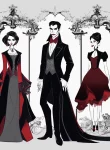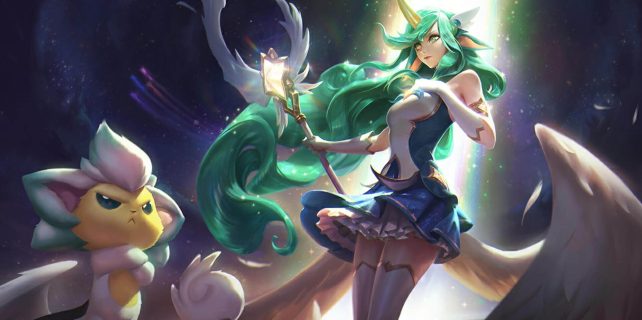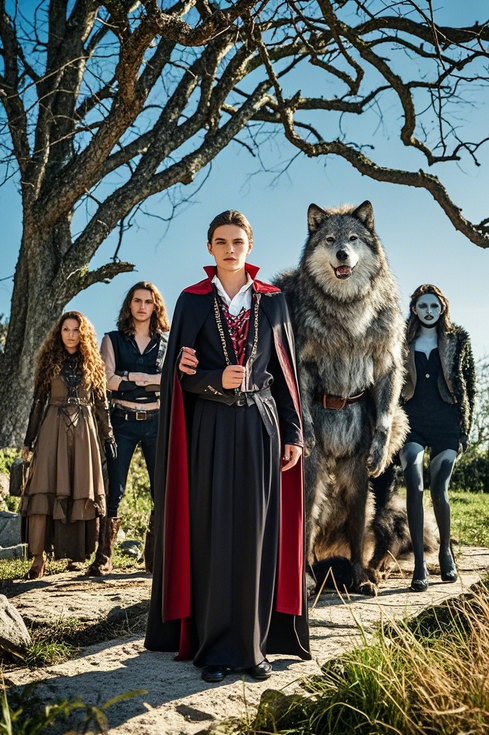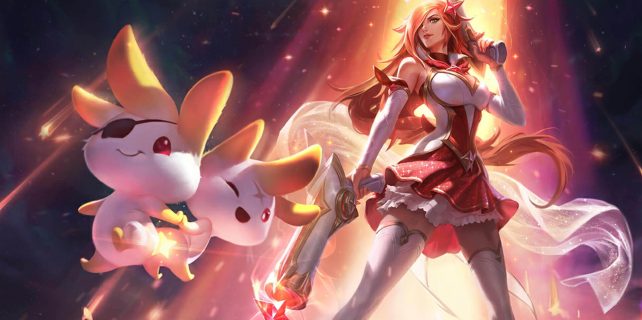
The Nine Personality Types for Character Creating
Type One: The Perfectionist – The Improver, The Defender of Principles, The Order Ambassador
Overview
- Highly principled, with a strong sense of right and wrong, and a firm moral code.
- Rational, reasonable, disciplined, and steady.
- Has a strong ethical sense and views truth and justice as fundamental values.
- Honesty and integrity make them a moral role model, a model of virtue, and a witness to truth.
- Very principled, always demanding impartiality and fairness, willing to improve themselves for the greater good.
Best State
- Possesses exceptional wisdom and discernment, a superior judgment that seems to always know the best course of action (morally speaking).
- Understands priorities and urgency, allowing them to have a transcendent perspective.
- Capable of offering wise advice and has lofty ideals and goals.
Appearance and Aura
- Neatly dressed, serious and focused, with a piercing gaze and no tolerance for mediocrity. Dutiful, diligent, hardworking, and committed to justice and fairness.
Speech Style
- “This is right/wrong!” “This should/should not be done!”
- “I can do this” “No, that’s not possible.” “Do you understand?”
Strengths
- Frugal, diligent, self-disciplined, never postpones tasks.
- Strong judgment and analytical skills.
- Patient, reasonable, and selfless, with high moral standards.
Neutral Traits
- Strict with others, loves to criticize, afraid of making mistakes.
- Very black-and-white thinking.
- Needs a subjectively agreeable position, no room for neutrality.
- May appear shallow, sometimes acting like a representative.
Weaknesses
- Intolerant of others, critical rather than appreciative, emotionally repressed, narrow-minded, stubborn, and dislikes criticism.
Personality Changes
- Under stable and personality growth conditions: Moves towards Type 7, becoming more relaxed, humorous, and accepting of others’ opinions.
- Under stress or self-defense: Moves towards Type 4, becoming depressed, self-critical, self-pitying, and emotionally down.
Wings
- 1w2: Tends to be more warm-hearted, helpful, and critical, with a strong desire for emotional connection.
- 1w9: Tends to be more easygoing, honest, and objective, less influenced by others.
Advice
- Strive to be a role model, not a critic.
- Don’t focus on trivialities and overlook the bigger picture.
- Forgive yourself and learn to be content. Don’t constantly push yourself beyond limits.
- Encourage others to criticize and point out mistakes, as your perfectionism might discourage them from coming to you with issues.
Interacting with Them
- Appreciate their critiques, as they are usually well-intentioned.
- Praise their seriousness and offer to share their workload if possible.
- Never hide the truth, apologize seriously when wrong, and take responsibility. If it’s your first mistake, they will likely forgive you; otherwise, it could be more troublesome.
Type Two: The Helper – The Giver, The Loving Type, The Empath
Overview Type Two is the only Enneagram type whose wings and growth lines are not thinking-based. Healthy Twos are emotionally involved, compassionate, and emotionally invested in others’ needs. They are generous, supportive, and always ready to help, giving unconditionally without expecting anything in return. They view serving others as an honor.
Best State
- Becomes truly selfless, only focused on others’ needs, and offers unconditional love without expecting anything back.
Appearance and Aura
- Warm, inviting, always with a smile, with a childlike innocence that makes them approachable and adaptable to any situation.
Speech Style
- “Oh! I’m so sorry to keep you waiting.”
- “Come sit here, it’s more comfortable!”
- “How thoughtful of you to come see me!”
Strengths
- Warm and approachable, with a charm that draws others in.
- Empathetic and considerate, always thinking about others.
- Willing to help and nurture others, like Mother Teresa.
Neutral Traits
- Can be overly flattering, overly sensitive, and sometimes a bit manipulative.
- Prone to possessiveness and want for complete control in relationships.
- High self-confidence and sometimes feels indispensable.
Weaknesses
- Tends to impose their help on others, even when it’s not needed.
- Can become overbearing and pushy with their opinions.
- Jealous and sometimes manipulative, trying to win affection.
Personality Changes
- Under stable and growth conditions: Moves towards Type 4, becoming more true to themselves and assertive about their own needs.
- Under stress: Moves towards Type 8, becoming more controlling and demanding.
Wings
- 2w3: More outgoing and successful, striving for admiration and recognition.
- 2w1: More critical, idealistic, and focused on what’s morally correct.
Advice
- Be cautious of invading others’ space; not everyone may want your help.
- Don’t focus so much on earning others’ appreciation; it may backfire.
- Learn to love yourself first, and don’t be afraid to prioritize your own needs sometimes.
Interacting with Them
- Appreciate their kindness and be specific about what they do for you.
- Be gentle when rejecting or giving feedback. Don’t try to please them by meeting their needs in return.
Type Three: The Achiever – The Performer, The Doer
Overview The Achiever is confident, self-assured, and driven by the need to succeed. They are adaptable and energetic, often charismatic and admired for their abilities. Threes are motivated by a strong desire to improve themselves, excel in their field, and earn the admiration of others.
Best State
- When healthy, Threes are authentic, motivated, and goal-oriented, achieving success while remaining true to themselves.
Appearance and Aura
- Confident, stylish, and charismatic. Often the center of attention in social situations.
Speech Style
- “Don’t worry, I’ll get it done.”
- “I can do this!”
- “Just work a little harder, success is near!”
Strengths
- Highly energetic, confident, and capable of inspiring others.
- Effective leaders and skilled communicators.
- Motivated, goal-oriented, and achievement-driven.
Neutral Traits
- Competitive and often self-centered, focusing more on success than relationships.
- May engage in superficial interactions and put appearance over authenticity.
Weaknesses
- Can become manipulative, using others as tools for personal gain.
- May sacrifice personal values or relationships for the sake of achievement.
Personality Changes
- Under stable and growth conditions: Moves towards Type 6, becoming more supportive and loyal.
- Under stress: Moves towards Type 9, becoming passive and disconnected.
Wings
- 3w4: More introspective, sensitive, and individualistic.
- 3w2: More people-oriented, charming, and relationship-driven.
Advice
- Avoid focusing too much on external validation; embrace your own self-worth.
- Don’t sacrifice your authenticity for success. Real success comes from being true to yourself.
Interacting with Them
- Compliment and praise their achievements.
- Offer constructive feedback, but avoid being too direct or critical.
- Focus on action and results when working with them; they appreciate efficiency.
Type Four: The Individualist – The Romantic, The Artist, The Self-Expressive
Overview Fours are introspective, creative, and emotionally complex. They have a deep desire to find their unique identity and express their inner world. They often feel misunderstood and long for personal significance and depth in their relationships.
Best State
- When healthy, Fours are deeply creative and able to express their authentic emotions in meaningful ways. They embrace their uniqueness and have the ability to transform their personal experiences into valuable art.
Appearance and Aura
- Artistic and unique, they often stand out in their style. Their expressions are often intense, and their mood is highly influenced by their emotions.
Speech Style
- “Let me think about it.”
- “I need a reason to act on this.”
- “You haven’t answered my question yet!”
Strengths
- Highly creative, intuitive, and emotionally sensitive.
- Expressive and unique, with an ability to connect deeply with others.
Neutral Traits
- Moody and prone to extreme emotional states.
- Can be self-centered and overly focused on their emotional experience.
Weaknesses
- Tends to be self-pitying and melancholic.
- Can become isolated and self-destructive, neglecting practical matters for emotional indulgence.
Personality Changes
- Under stable and growth conditions: Moves towards Type 1, becoming more disciplined, rational, and organized.
- Under stress: Moves towards Type 2, becoming more needy and controlling.
Wings
- 4w5: More introspective, independent, and intellectual.
- 4w3: More social, ambitious, and focused on personal achievement.
Advice
- Don’t get lost in your emotions or idealistic fantasies.
- Learn to embrace stability and stop isolating yourself for emotional drama.
- Work on expressing your feelings in constructive, rather than destructive, ways.
Interacting with Them
- Appreciate their creativity and individuality.
- Be gentle with their emotions; they are often very sensitive.
- Don’t criticize their feelings—validate them instead.
Type Five: The Investigator (The Observer, The Thinker, The Rational Analyst)
The Fifth Personality Type is also known as The Observer, The Thinker, The Rational Analyst. A healthy Fifth Type can observe everything with extraordinary perception and insight. They are mentally sharp, highly curious, and possess acute wisdom, using remarkable perception to ask the right questions. These individuals are able to focus their attention and concentrate fully on things that catch their interest, predicting how events will unfold. They love to learn, excited by acquiring knowledge, and often become experts in specific areas. They are independent thinkers, innovative, and capable of creating highly valuable and original ideas and concepts. In their best state, they are discoverers who have a broad and deep understanding of the world. They are visionary, open-minded, see things holistically, can connect events over time, and are able to uncover the truth. They may be pioneers in discovering new things and could potentially be major geniuses.
This personality is typically introverted. Fifth Types tend to focus on their privacy, are not skilled in socializing, and often withdraw from social activities. To others, they may appear distant and cold. They rarely talk about their personal lives, leading others to believe they are deep and hard to understand. Although some Fifth Types seem happy and lively, they seldom form deep relationships with others unless they are close friends. They can sometimes be highly focused, with strong analytical and observational abilities, always seeking knowledge and thinking to solve problems, but they often take little action and may frequently give up. Their indecisiveness at work can lead to missed opportunities. They enjoy collecting things for future use but are unwilling to share them with others.
Characteristics
- Appearance and Style: Simple clothing, neutral colors, ordinary and plain styles.
- Appearance, Posture, and Demeanor: Typically calm, stiff, with a blank expression. They are not overly expressive and their emotions rarely show. Their face may seem emotionless, and they seldom smile or show much reaction. They tend to have a thin, quiet, and introspective look.
- Posture: Often slouched with crossed arms or legs. They may stare intensely with slightly protruding eyes and turn their head when observing something. They typically keep to themselves and avoid deep interactions with others.
- Speech: They prefer to listen rather than speak and are profound and thorough when they do speak. Their tone is flat, quiet, and unemotional. Their speech often includes terms like “I think,” “My analysis is,” “My position is,” or “My opinion is,” and is often full of technical jargon. They can be slow to react, and their words are concise and to the point.
Healthy Traits
- Excellent observation and curiosity.
- Strong analytical skills.
- Quick-witted and intelligent, often excelling as scientists or PhDs.
General Traits
- Often act as observers and analysts, rarely engaging in direct action.
- May be sarcastic or cynical.
- Tend to follow their own thoughts and rarely consider others’ feelings.
- Resist emotional involvement and often withdraw emotionally.
Unhealthy Traits
- Avoidant, withdrawing from social circles.
- Hostile, feeling that the world and people are inherently problematic.
- Detached from reality, often confused about why things happen, and may experience extreme stress and suicidal ideation.
Personality Development
- In a stable and growth-oriented state: They move toward Type Eight, becoming leaders who take risks, put their ideas into action, and are willing to collaborate with others, demonstrating courage and strategic thinking. They show empathy and concern for others and may become highly respected figures.
- Under stress or in self-protection mode: They move toward Type Seven, becoming more introverted and sometimes putting on an outwardly extroverted facade. They can become disconnected from reality, indulge in daydreaming, and become neurotic, often overthinking and avoiding commitment. They may talk a lot about theories and become indecisive and uncertain.
Wings
- 5w4 (The Iconoclast): Tends to have a more creative, emotional side, often melancholic due to strong internal feelings.
- 5w6 (The Problem Solver): Tends toward Type Six, working well in groups as advisors or strategists, gaining recognition and trust.
Type Six: The Loyalist (The Seeker of Security, The Cautious Type, The Loyalist)
The Sixth Personality Type is known as The Loyalist, The Seeker of Security, The Cautious Type, or The Skeptic. A healthy Sixth Type elicits strong emotional responses from others. They are charming, endearing, friendly, playful, and strive to please people. Trust is very important to them, as it forms the foundation of their relationships. Others are enthusiastic about them, eager to help and protect them. They are committed to and loyal to those they trust, particularly family and friends, making them feel like they belong to a community. They respond to others with cooperation, reliability, responsibility, and hard work. In their best state, they become self-assured, independent, and equally interdependent with others. Their self-confidence leads to positive attitudes, courage, leadership, creativity, and self-expression.
This personality is one of the most complex among the Enneagram types. It can be divided into two main subtypes: the Fearful Six (the “Positive Six”) and the Anti-Fearful Six (the “Rebellious Six”). The major difference is how each subtype deals with fear and enemies. Positive Six tends to avoid fear, while Rebellious Six confronts and overcomes their fears, becoming confident and assertive in difficult situations. This tendency to be assertive when facing challenges may resemble Type Eight, but the difference is that Rebellious Six acts with a sense of defiance, while Type Eight is often proactively aggressive.
Type 7: The Enthusiast – Creators of Possibilities, Active, Hedonistic
Personality of Type 7
Known as the Hedonist, also called the Active Type, Generalist, Fire Kirin, or Creator of Possibilities. Type 7 is the only personality in the Enneagram where neither the wings nor the integrating/disintegrating types are emotion-driven. Due to their high sensitivity to various experiences, they are often excited and passionate. A healthy Type 7 is typically extroverted, focused on the real world of things and sensations. They are spontaneous and find joy in every experience. They react immediately to every stimulus and view life as exciting and inspiring. These individuals are joyful, energetic, and easily excited, with a lively and dynamic personality. They are versatile, able to do many things well, and are talented, like a Renaissance person with extraordinary skills and remarkable talent. They are practical, productive, rich in talents, and cultivate a variety of interests that complement each other.
Best State: Deeply absorb various experiences, become appreciative, grateful, and awed by the wonders of life. They feel confident in life, joyful, and elated. They experience life beyond the physical realm, with a deep sense of its beauty and wonder.
Appearance and Temperament
Full of vitality, radiant with a pleasant smile, they are easily accepted by the public. They are quick-witted, adaptable, and have an appealing, non-pressuring attitude. Typically, they appear striking, with men often having impressive appearances and women being charming and innovative in their clothing style. Their vibrant looks and upbeat personality make them a focal point in any group. They are adept at creating win-win situations, and despite having many ideas, they manage to keep their personality from becoming overwhelming, maintaining harmonious interpersonal relationships.
Speech Style
“Not good!” “Good!” “So much fun!” “Haha!” “Idiot!” (sometimes)
Healthy Traits
- Versatile
- Quick to respond
- Quick to learn new things
- Able to solve problems
- Extroverted, optimistic, and grateful
- Highly spontaneous
- Full of energy and enthusiasm
General Traits
- Love to play and indulge
- Multitasking
- Overactive
Unhealthy Traits
- Addicted to pleasure
- Impulsive, exaggerated, unrealistic
Integrating and Disintegrating Characteristics
- When stable and growing, they move toward Type 5, learning self-discipline, being thoughtful, and making decisions after careful observation and deliberation. They contribute their deep experiences to their environment and no longer fear that their happiness will be exploited.
- Under stress and self-defense, they move toward Type 1, becoming authoritarian, easily angered, stubborn, and demanding. They will tightly cling to anything or anyone that seems to promise a solution to their unhappiness.
Wings
- 7w6: Performer
- Healthy: High productivity and leadership skills, bringing positive energy to others. They have a talent for spreading joy, and their wit and observance are key to this.
- General: Can become impatient with others who don’t meet their expectations, overly self-centered, expecting others to share their joy and lift their spirits when they’re down.
- Unhealthy: Becomes anxious and paranoid, seeking to escape discomfort through external means.
- 7w8: Realist
- Healthy: Enjoys life’s pleasures but also understands how to achieve and maintain a good state. They are successful in achieving goals and solving problems, with potential leadership skills.
- General: Can become self-centered and authoritative, following their own interests and desires. They have a stronger will than the 7w6 wing and are harder to be distracted from their goals.
- Unhealthy: Pursues extreme experiences, living dangerously, and becomes reckless and destructive.
Type 8: The Leader – Challenger, Authority, Leader
Personality of Type 8
Known as the Capability Type, Leader, Protector, and Authority. Type 8 individuals are assertive, self-confident, and strong-willed. Healthy Type 8s learn to embrace their own needs and desires. They are action-oriented, driven by internal motivation, and welcome challenges. Like resourceful self-starters, they make things happen. They are natural leaders, respected for their decisiveness and authoritative presence. They command respect and use constructive power to support and protect others. They win admiration through noble actions, using strength to support meaningful causes.
Best State: Self-disciplined, generous, patient, autonomous, and able to lead others to fulfill their needs. They are courageous, willing to take risks, and driven to fulfill their ideals—potentially becoming heroes or historical figures.
Appearance and Temperament
Impressive presence, commanding and powerful, sometimes rough and blunt. They have a strong, determined gaze and a loud voice. Their style is often bold and confident, with a high sense of self-worth and little regard for small details. They project authority and strength.
Speech Style
“Not good,” “No,” “Nothing is impossible for me!” “I want XX,” “You should do this.”
Healthy Traits
- Strong self-confidence
- Action-oriented
- Natural leader
- Brave and magnanimous
General Traits
- Self-protective
- Subjective, individualistic, resistant to feedback
- Loves to control others and their environment
- Has a high opinion of themselves
- Fears being hurt, often presenting themselves as powerful and in control
- Under pressure, avoids confrontation, pushing others away
Unhealthy Traits
- Violent: behaves like a tyrant
- Ruthless, dictatorial
- Excessively exaggerated
- Destructive
- Uses power and violence to communicate with others
Integrating and Disintegrating Characteristics
- When stable and growing, they move toward Type 2, becoming kinder and more supportive, with genuine ideals and the desire to help others.
- Under stress and self-defense, they move toward Type 5, becoming stubborn, isolated, and manipulative. They may become paranoid, thinking others are plotting against them, and start fearing everyone around them.
Wings
- 8w9: Tends toward Type 9, being calmer, more gentle, and accepting of others’ suggestions, though they can also become distant and cold.
- 8w7: Tends toward Type 7, being more outgoing, expressive, adventurous, and sometimes self-centered, but they can get angry when challenged.
Type 9: The Peacemaker – Harmonizer, Easygoing, Mediator
Personality of Type 9
Known as the Peacemaker, Harmonizer, Maintainer of Harmony, or Mediator. Healthy Type 9s are accepting, emotionally stable, and serene. They accept themselves and others, facing life with a relaxed and peaceful attitude. They are patient, gentle, and humble, with a pure-hearted nature. They are optimistic, reliable, kind-hearted, and supportive of others, often creating a calming and healing presence in groups. They bring harmony and unity to those around them, acting as excellent mediators, comforters, and supporters.
Best State: They experience profound inner peace and satisfaction. They feel autonomous and fulfilled, forming deep connections with others while being fully integrated with themselves. This brings them clarity, liveliness, and awareness of both themselves and others.
Appearance and Temperament
Peaceful, optimistic, and easygoing, with a relaxed and simple style. Their speech and actions tend to be slow and unhurried, embodying a calm demeanor.
Speech Style
“Whatever, it’s fine.” “Don’t worry about it, it’s okay.” “Things will work out.” “Don’t take it to heart.”
Healthy Traits
- Open-hearted
- Calm and peaceful
- Humble, pure-hearted like a child
- Cheerful and patient
- Good listener
- Has a noble presence
General Traits
- Overly compliant
- Dependent on others’ decisions
- Lazy and procrastinates
- Avoids making decisions to prevent conflict
- Passive-aggressive tendencies
Unhealthy Traits
- Helpless and directionless
- Stagnant and inactive
- Numb, self-destructive
- Lacks a strong sense of identity
- In severe cases, may experience dissociation
Integrating and Disintegrating Characteristics
- When stable and growing, they move toward Type 3, becoming more goal-oriented and proactive, with a growing interest in self-improvement. They gain confidence and independence, able to assert their own opinions and goals.
- Under stress and self-defense, they move toward Type 6, becoming anxious, paranoid, and defensive, with a tendency to overthink and fear being betrayed.
Wings
- 9w1: Tends toward Type 1, becoming more mission-driven, organized, and efficient, though also more critical and self-centered.
- 9w8: Tends toward Type 8, becoming more assertive, confrontational, and sometimes less predictable, with a mix of compassion and firmness.

































